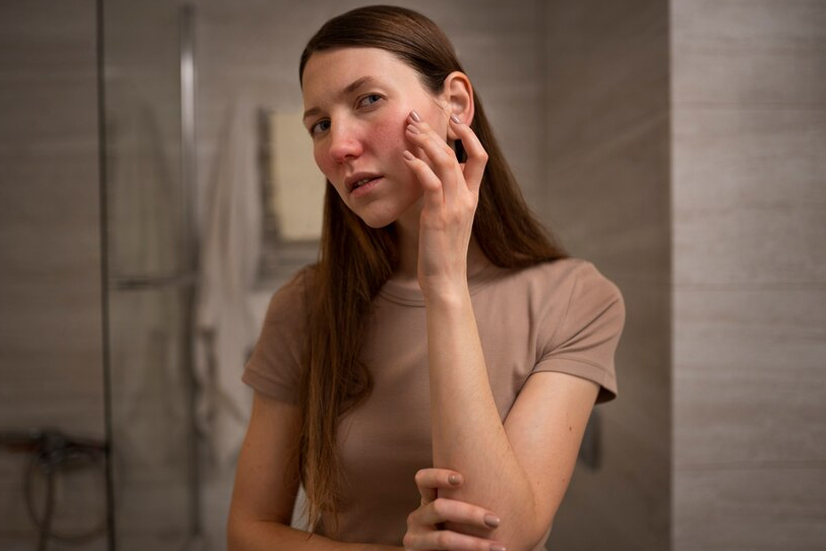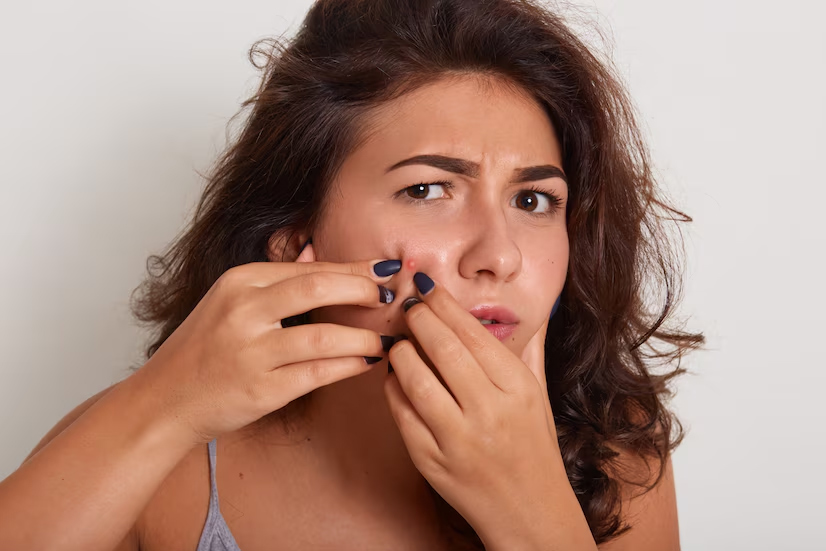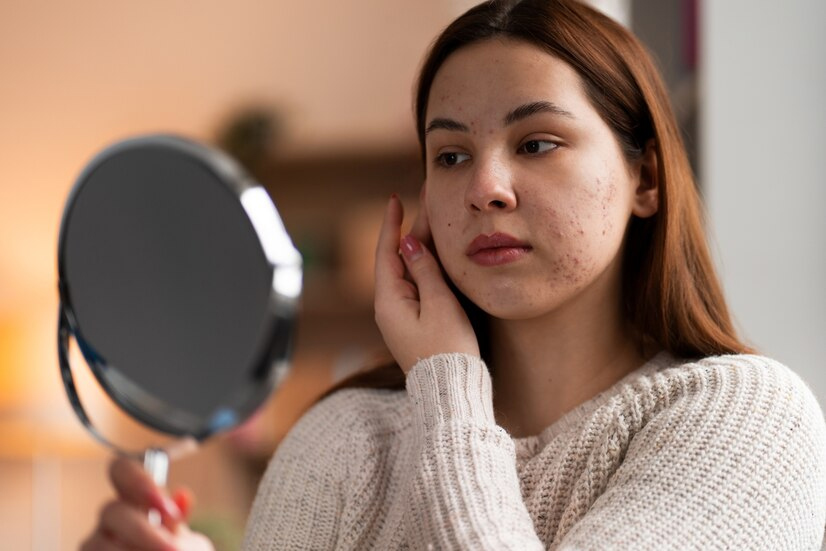
Hormonal changes are a normal part of life and affect everyone. From puberty to the beginning of menstruation to menopause, people experience hormonal fluctuations throughout their lifetime and during various life events. These changes can have various effects on the body, including changes in skin health. Hormonal acne is a common symptom of hormonal changes and imbalances, which needs to be addressed effectively and with professional guidance. However, hormonal acne doesn't occur in everyone, and some people are saved from the trouble. We asked a dermatologist the reasons behind why some people are unaffected.
Table of Content:-
How Hormonal Changes Affect Skin

“Hormonal fluctuations play a significant role in the onset of acne by influencing the production of sebum, the oily substance that can clog pores and lead to breakouts,” explained Dr Shireen Furtado, Senior Consultant - Medical and Cosmetic Dermatology, Aster CMI Hospital, Bengaluru.
She added, “During periods of hormonal change, such as puberty, menstruation, or hormonal therapies, the body may produce an excess of androgens, which are male hormones present in both men and women. This increase in androgens stimulates the sebaceous glands, resulting in heightened sebum production.”
According to the doctor, hormonal changes can also affect the skin's cellular turnover, leading to a buildup of dead skin cells that can further obstruct pores.
Additionally, hormonal fluctuations, often triggered by conditions such as Polycystic Ovary Syndrome (PCOS) or thyroid disorders, can lead to an overproduction of sebum and subsequent clogging of pores, thereby exacerbating acne. Some treatments that alter hormonal levels, such as hormonal contraceptives or certain medications for acne, may mitigate the severity of breakouts by stabilising hormone levels.
At the same time, some treatments, particularly those that induce hormonal changes, may inadvertently heighten the risk of developing hormonal acne.
Why Some People Are Not Affected By Hormonal Acne

It is important to note that not everyone experiences acne with hormonal fluctuations, which can be attributed to a variety of factors, including genetic predisposition, skin type, lifestyle choices, and the presence of other underlying health conditions.
Dr Furtado said, "Certain genetic predispositions can affect the way an individual's body responds to hormonal fluctuations, particularly during puberty, menstruation, or other hormonal changes. These genetic variations may impact the production of sebum, the skin's oil, and the overall function of the sebaceous glands, leading to a higher or lower risk of developing acne.”
“Consequently, individuals with a family history of hormonal acne may find themselves more prone to experiencing similar skin issues, while others may possess genetic traits that render them less susceptible to such conditions," she added.
Also Read: How To Perform A Skin Self-Exam: Dermatologist Shares What's Normal And What To Watch Out For
How Lifestyle Changes Influence The Development Of Hormonal Acne
Diet and lifestyle play a big role in how hormonal changes can lead to acne. Eating high-glycaemic foods or dairy products may worsen hormonal imbalances and trigger breakouts.
In general, a 2009 study published in the journal Dermato Endocrinology suggests that diet, particularly the balance of omega-6 and omega-3 fatty acids, plays a significant role in acne development. A typical Western diet, with an omega-6 to omega-3 ratio of 10:1–20:1, is associated with higher levels of inflammation compared to non-Western diets, which maintain a healthier ratio of 3:1–2:1. Omega-6 fatty acids promote inflammation and may contribute to inflammatory acne, while omega-3 fatty acids, found in fish and seafood, help reduce inflammation and are linked to lower rates of inflammatory diseases.
Furthermore, refined carbohydrates in Western diets may increase sebum production, potentially worsening acne.
Dr Furtado added that stress, poor sleep, and lack of physical activity can also affect hormone levels and contribute to acne. Managing these factors is important for preventing and controlling acne caused by hormonal shifts.
Skin Care Routine To Reduce Likelihood Of Hormonal Acne

Hormonal acne can be a challenging condition to manage, but there are several preventive strategies and skincare regimens that may help mitigate its occurrence. Implementing a consistent skincare routine that includes gentle cleansing, exfoliation, and the use of non-comedogenic products can be beneficial.
Using ingredients such as salicylic acid, benzoyl peroxide, or retinoids may assist in regulating oil production and preventing clogged pores. It is also advisable to maintain a balanced diet rich in antioxidants and omega-3 fatty acids, as well as to manage stress levels through practices such as mindfulness or regular exercise, as these factors can influence hormonal fluctuations.
Regular consultations with a dermatologist can further tailor a skincare approach that addresses individual needs and concerns related to hormonal acne.
Also watch this video
Read Next
Doctor Shares AM & PM Skincare Tips for Your 30s: Beat Ageing and Pigmentation for a Radiant Glow
How we keep this article up to date:
We work with experts and keep a close eye on the latest in health and wellness. Whenever there is a new research or helpful information, we update our articles with accurate and useful advice.
Current Version